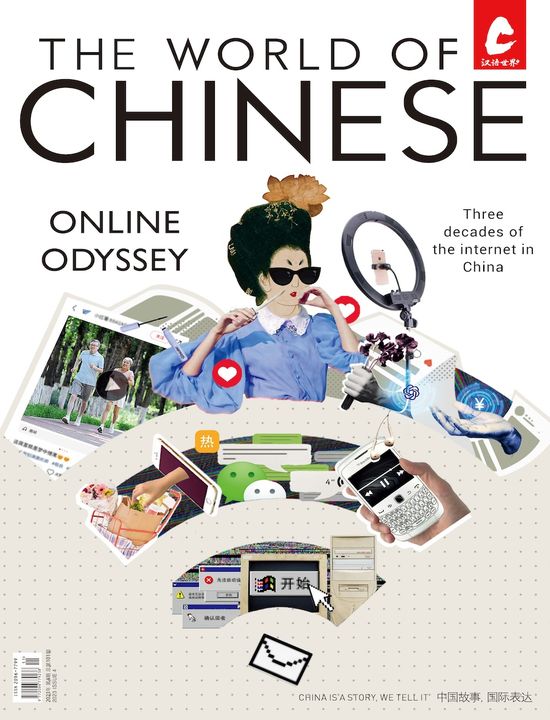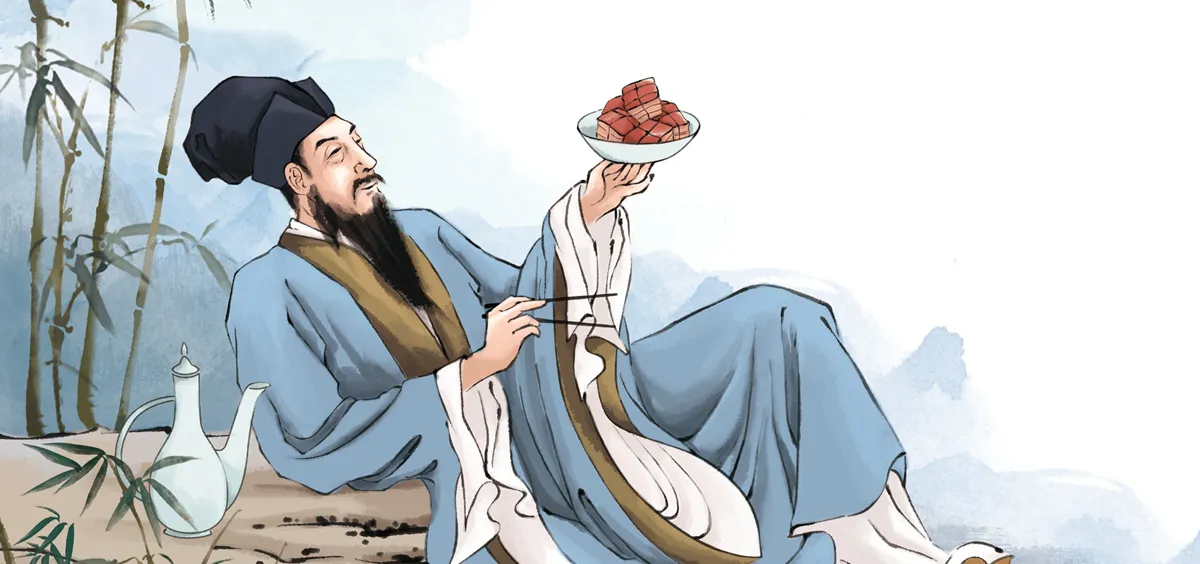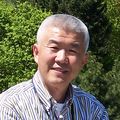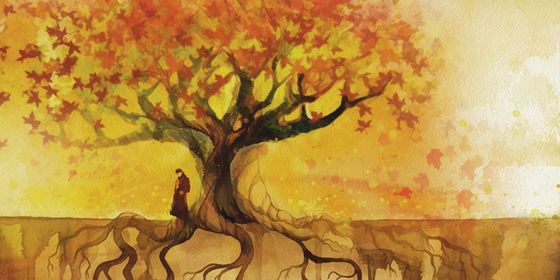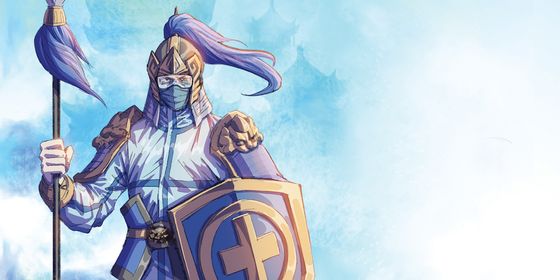A versatile character to suit any palate
“Eat when you’re hungry, sleep when you’re drowsy; don’t tire yourself out (饥来吃饭困来睡,莫把身来累),” goes the life philosophy of Liu Xueji (刘学箕), a poet from the Southern Song dynasty (1127 – 1279) who devoted his entire life to travel, and never sought the conventional post of an official.
Today, this carefree doctrine might be echoed by many young Chinese, who, following the lifting of Covid-19 restrictions across most of the country, are flocking to enjoy themselves in restaurants, tourist sites, and reopened street food stalls—that is, if they can afford these pleasures, amid the economic pressures that have also resumed with life in China.
The usage of the character 吃 (chī) to indicate eating is a relatively recent concept, though the character first appeared in the Eastern Han dynasty (25 – 220), when the linguist Xu Shen (许慎) defined it as “a person who has difficulty with pronunciation” in his Analytical Dictionary of Chinese Characters (《说文解字》). At that time, 吃 was the verb form of 口吃 (kǒuchī, stammer), formed by using a “mouth” (口 kǒu) radical on the left and a radical meaning “to beg” (乞 qǐ) on the right.
The action of eating was expressed by the character 食 (shí) in ancient China. A farmer’s lament in the 3,000-year-old Book of Songs (《诗经》) goes, “Field mice, field mice, don’t eat the crops our labors yield (硕鼠硕鼠,无食我黍).” Later, 食 also became a noun meaning “food” or “grain,” as in the well-known proverb, “To the people, food is all-important (民以食为天).” Today, 食 still appears in nouns related to eating, such as “食堂 (shítáng, canteen)” and “食物 (shíwù, food),” while 吃 is more frequently used for actions, like “吃饭 (chīfàn, to eat a meal)” and “吃药 (chīyào, to take medicine).”
Though it didn’t denote eating in ancient Chinese, 吃 did have the meaning of “to drink,” and is still sometimes used in this way by elderly people or speakers of some regional dialects. The heroes of the classic novel The Water Margin (《水浒传》), who are known for their forthright character, frequently declare, “Let’s drink (吃酒 chījiǔ)!” A quote by Mao Zedong goes, “When drinking water, never forget the people who dug the well (吃水不忘挖井人 chīshuǐ bú wàng wājǐngrén).”
Food is at the heart of Chinese culture, which has thousands of years of farming tradition and memories of many famines in ancient and modern history. When Chinese people meet one another, a classic greeting is “Have you eaten yet (吃了吗 Chīle ma)?” A host may open a banquet by telling the guests “Help yourself to more dishes (多吃菜 duō chī cài)” to show hospitality.
The character 吃 may also appear in metaphors for consumption. “吃白饭 (chī báifàn),” meaning “to eat only rice (without taking vegetables and meat),” refers to when a lazy person puts in no effort but reaps benefits from others’ work. These types of leeches are common when a team “吃大锅饭 (chī dàguōfàn, eats from the big pot),” meaning everyone gets rewarded equally no matter their individual contribution to a task. This expression comes from China’s communist 1950s, when workers and farmers took their meals in communal canteens and received equal rations of food.
In contemporary Chinese, 吃 can describe actions loosely associated with eating and devouring. For instance, in the expression “吃了对方一个师 (chī le duìfāng yí gè shī, defeat an enemy’s division),” 吃 is military slang for “elimination.” Likewise, in Chinese chess, a colloquial expression for where one party removes a chess piece from the other is “吃了一个子儿 (chī le yí gè zǐr).”
The character has other meanings, like “to bear,” “to experience,” or “to suffer.” Chinese traditionally believed that “吃苦耐劳 (chīkǔ nàiláo, bearing hardships and enduring hard work)” can cultivate one’s character. However, workers pulling consecutive 12-hour days at the office may complain that they “吃不消 (chībuxiāo, can’t bear it).”
In the expression “靠山吃山,靠水吃水 (kàoshān chīshān, kàoshuǐ chīshuǐ, eat the mountains when near mountains; eat water when near water),” 吃 has the meaning of “to depend on” or “to live off of.” The phrase means that the circumstances of one’s life determine how one lives. But if one only consumes and never produces, they are very likely to 坐吃山空 (zuò chī shān kōng, sit idle and eat up a mountain). This idiom is often used today to describe lazy fu’erdai, the children of millionaires and billionaires, who squander the fortune they inherit.
Often, metaphors involving eating have negative meanings. “吃醋 (chīcù),” literally “eating vinegar,” means “to be jealous,” perhaps reflecting the sour pangs of envy. Likewise, when one scores zero on a test, it’s known as “吃鸭蛋 (chī yādàn, eating duck egg),” as the numeral resembles a duck egg. Another term is “吃豆腐 (chī dòufu, eating tofu),” which describes taking advantage of a woman, as tofu is soft in texture.
Nowadays, “吃货 (chīhuò, foodie)” is an emerging slang term for describing people of all ages who cannot resist the enticement of delicious food. Delicacies, however, can be expensive. Next time you blow your salary on frivolous purchases, and must metaphorically “吃土 (chītǔ, eat dirt)” until your next paycheck, remember that sometimes, “吃亏是福 (chīkuī shì fú, a loss may be a blessing in disguise).” As the elders say, “吃一堑,长一智 (chī yí qiàn, zhǎng yí zhì, experience a setback to gain wisdom)”—that is, you should learn from your mistakes.
On the Character: 吃 is a story from our issue, “High Steaks.” To read the entire issue, become a subscriber and receive the full magazine. Alternatively, you can purchase the digital version from the App Store.
